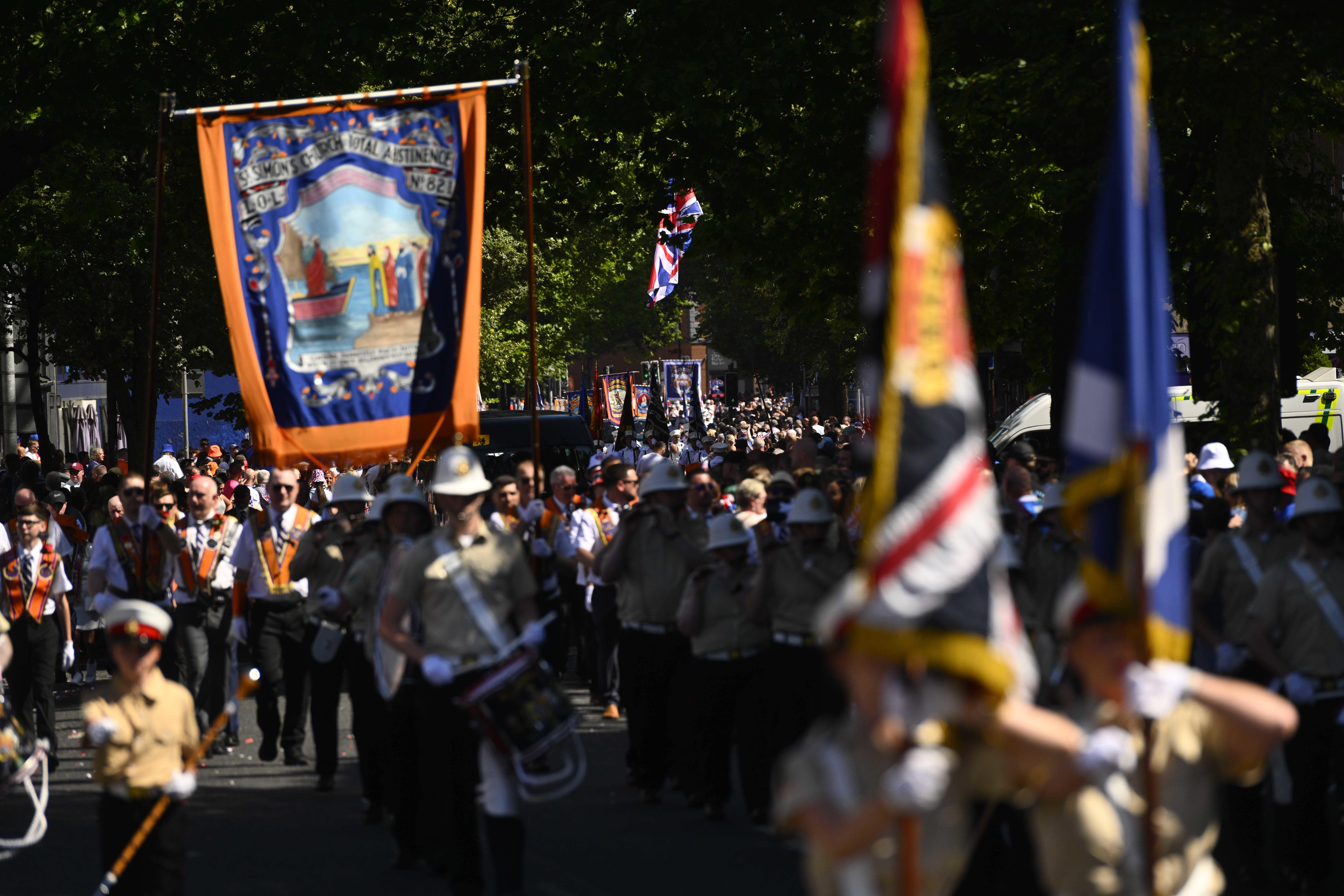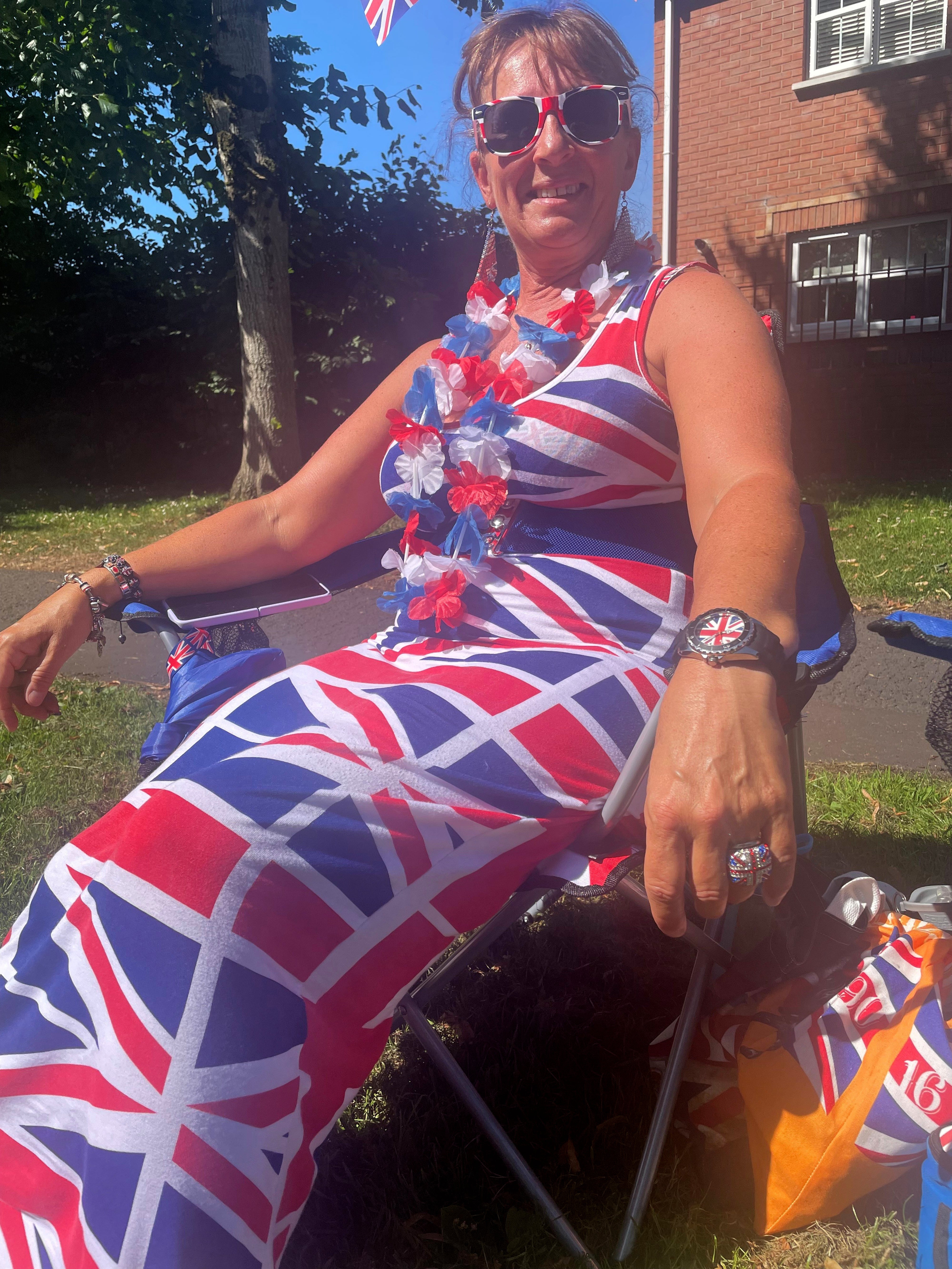Tens of thousands of people joined Twelfth of July celebrations across Northern Ireland, braving scorching temperatures for the traditional Orange Order parades.
Crowds lined the streets in cities, towns and villages as the region marked the 334th anniversary of the Battle of the Boyne, when the Protestant King William of Orange triumphed over the Catholic King James II.
The parades typically consist of Orange lodges accompanied by marching bands, drawing support from spectators along their routes.
When the parades reach demonstration fields, a religious service is observed and speeches delivered before the march home.
This year's festivities, spread across 19 main locations, also featured calls for unionist political parties to collaborate.
This year’s celebrations took place with temperatures above 25C right across Northern Ireland.

DUP leader Gavin Robinson addressed the parade in Belfast, while Northern Ireland’s deputy First Minister Emma Little-Pengelly delivered a speech at the Lisburn parade. Ulster Unionist MP Robin Swann spoke at the parade in Carnlough, Co Antrim.
Orange Order deputy grand master Harold Henning told the parade in Maghera, Co Londonderry, that unionist political parties had to work together.
He said: “The leadership of this institution remains consistent in its desire to see closer collaboration between the leadership of our pro-union political parties so as to maximise unionist representation at all levels of government.
“Cooperation between our political representatives must be encouraged – more than that, it should be demanded, and country should always come before party or individual self -interest.
“Let’s get that message out to our politicians – as a people, we want to see more unity of purpose across political unionism.”
One of the largest parades took place in Keady, Co Armagh, where Orange Order grand secretary Mervyn Gibson spoke about the strengths of the union.

He said: “We need to promote the union at every opportunity – a union that has stood the test of time and continues to offer its citizens stability, opportunity, and purpose.
“At its heart, the United Kingdom is more than just a political entity.
“It is a partnership of four nations England, Scotland, Wales, and Northern Ireland – each with its own identity, traditions, and strengths.
“Let us concentrate on building and promoting this union, which a generation defended during the Troubles against the murderous, cowardly terrorist campaign of republicans.”
On Saturday morning, an Orange Order feeder parade passed the Ardoyne shops in north Belfast without incident.
On Sunday, a return parade will return past the shops, but will be restricted to one band and 50 members of the order.
Meanwhile, the traditional July 13 events organised by the Royal Black Preceptory in the village of Scarva, Co Armagh, will take place on Monday.
The event includes a parade as well as a sham fight between actors playing rival monarchs William and James.
The Twelfth celebrations come after the burning of bonfires at an estimated 300 locations in loyalist neighbourhoods across the region on Thursday and Friday nights.
The Northern Ireland Fire and Rescue Service (NIFRS) said it dealt with a “challenging” situation and one firefighter was attacked while attending a bonfire in Lisburn, Co Antrim.
Northern Ireland’s Environment Minister Andrew Muir said he was “very disappointed” that a controversial bonfire in south Belfast was lit despite warnings of asbestos on the site.
Of all the loyal order parades to take place on Saturday, about 30 have been officially categorised as sensitive by the Parades Commission.
Locations of sensitive parades this year include Belfast, Coleraine, Keady, Dunloy, Rasharkin, Strabane, Newtownabbey, Maghera, Newtownbutler, Portadown, Glengormley and Bellaghy.
More than 4,000 police officers and police staff are working on July 12.
On the 11th night, about 1,200 officers were deployed to monitor public safety at bonfires.
The cost of policing parades and bonfires in Northern Ireland through spring and summer was £6.1 million last year, a figure that was up £1.5 million on the previous year.
The bill, which covers the period April 1 to August 31, also includes the cost of policing republican commemorations around Easter and events to mark the mid-August anniversary of the introduction of internment without trial during the Troubles.
The PSNI expects the costs in 2025 to be higher still.
This is because of falling police numbers and the resulting increased reliance on paying overtime to ensure enough officers are on duty for the events.







